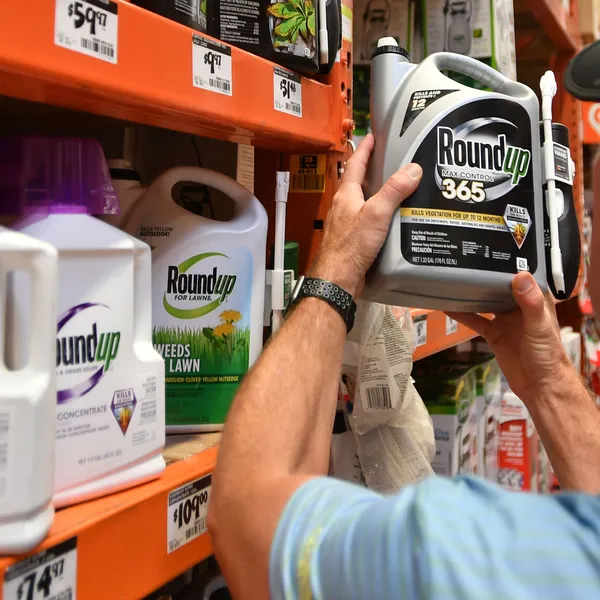New Toxic Milk Case in China Kept Secret for a Year, Reports Say
Officials announced closure of Shanghai Panda last week after reportedly opening melamine investigation last February
A fresh scandal over toxic milk products has shocked Chinese consumers, with state media today reporting claims that officials waited almost a year before warning the public.
The government pledged to clean up the dairy industry in autumn 2008, when 300,000 babies were taken ill and six died after drinking melamine-tainted Sanlu-brand infant formula. The issue reared its head again last week when food safety authorities in Shanghai announced they had shut down the Shanghai Panda company after discovering it was producing condensed milk and milk powder laced with the same chemical.
The China Daily newspaper suggested today that officials began investigating the company as early as February last year. Chinese press said Shanghai Panda was among more than 20 dairy firms found to have melamine in their products during the Sanlu scandal, but was allowed to resume production after promising to improve product safety.
But China Daily reported claims that problems surfaced again in December 2008 and officials began investigating two months later, citing documents from prosecutors in Fengxian district, Shanghai. The firm's board chairman, general manager and deputy general manager have been arrested.
"The case was not allowed to be released to the public," Shen Weiping, of the prosecutors' office, told the newspaper. "The three executives will be prosecuted in a week for producing and selling fake or substandard products."
Yan Fengmin, of the general administration of quality supervision, inspection and quarantine, told the newspaper that the case was withheld because it was under criminal investigation by police.
He said both the administration and the Shanghai government were informed immediately after the case was found, and all harmful products were seized. It is not clear when officials began recalling them.
Wang Dingmian, former director of the Dairy Association of China, told the Global Times newspaper that he believed the problem was linked to the earlier scandal. "Some local governments didn't destroy [tainted products] completely. Some producers recycled and sold them again illegally," he alleged.
Yan denied that such materials were involved in the new case, saying local governments had overseen the destruction of all recalled products.
Melamine, used in the production of plastics and fertilisers, gives the illusion of higher protein levels in nutrient tests. A dairy farmer and milk salesman were executed for their roles in the Sanlu scandal in November.
An Urgent Message From Our Co-Founder
Dear Common Dreams reader, The U.S. is on a fast track to authoritarianism like nothing I've ever seen. Meanwhile, corporate news outlets are utterly capitulating to Trump, twisting their coverage to avoid drawing his ire while lining up to stuff cash in his pockets. That's why I believe that Common Dreams is doing the best and most consequential reporting that we've ever done. Our small but mighty team is a progressive reporting powerhouse, covering the news every day that the corporate media never will. Our mission has always been simple: To inform. To inspire. And to ignite change for the common good. Now here's the key piece that I want all our readers to understand: None of this would be possible without your financial support. That's not just some fundraising cliche. It's the absolute and literal truth. We don't accept corporate advertising and never will. We don't have a paywall because we don't think people should be blocked from critical news based on their ability to pay. Everything we do is funded by the donations of readers like you. Will you donate now to help power the nonprofit, independent reporting of Common Dreams? Thank you for being a vital member of our community. Together, we can keep independent journalism alive when it’s needed most. - Craig Brown, Co-founder |
A fresh scandal over toxic milk products has shocked Chinese consumers, with state media today reporting claims that officials waited almost a year before warning the public.
The government pledged to clean up the dairy industry in autumn 2008, when 300,000 babies were taken ill and six died after drinking melamine-tainted Sanlu-brand infant formula. The issue reared its head again last week when food safety authorities in Shanghai announced they had shut down the Shanghai Panda company after discovering it was producing condensed milk and milk powder laced with the same chemical.
The China Daily newspaper suggested today that officials began investigating the company as early as February last year. Chinese press said Shanghai Panda was among more than 20 dairy firms found to have melamine in their products during the Sanlu scandal, but was allowed to resume production after promising to improve product safety.
But China Daily reported claims that problems surfaced again in December 2008 and officials began investigating two months later, citing documents from prosecutors in Fengxian district, Shanghai. The firm's board chairman, general manager and deputy general manager have been arrested.
"The case was not allowed to be released to the public," Shen Weiping, of the prosecutors' office, told the newspaper. "The three executives will be prosecuted in a week for producing and selling fake or substandard products."
Yan Fengmin, of the general administration of quality supervision, inspection and quarantine, told the newspaper that the case was withheld because it was under criminal investigation by police.
He said both the administration and the Shanghai government were informed immediately after the case was found, and all harmful products were seized. It is not clear when officials began recalling them.
Wang Dingmian, former director of the Dairy Association of China, told the Global Times newspaper that he believed the problem was linked to the earlier scandal. "Some local governments didn't destroy [tainted products] completely. Some producers recycled and sold them again illegally," he alleged.
Yan denied that such materials were involved in the new case, saying local governments had overseen the destruction of all recalled products.
Melamine, used in the production of plastics and fertilisers, gives the illusion of higher protein levels in nutrient tests. A dairy farmer and milk salesman were executed for their roles in the Sanlu scandal in November.
A fresh scandal over toxic milk products has shocked Chinese consumers, with state media today reporting claims that officials waited almost a year before warning the public.
The government pledged to clean up the dairy industry in autumn 2008, when 300,000 babies were taken ill and six died after drinking melamine-tainted Sanlu-brand infant formula. The issue reared its head again last week when food safety authorities in Shanghai announced they had shut down the Shanghai Panda company after discovering it was producing condensed milk and milk powder laced with the same chemical.
The China Daily newspaper suggested today that officials began investigating the company as early as February last year. Chinese press said Shanghai Panda was among more than 20 dairy firms found to have melamine in their products during the Sanlu scandal, but was allowed to resume production after promising to improve product safety.
But China Daily reported claims that problems surfaced again in December 2008 and officials began investigating two months later, citing documents from prosecutors in Fengxian district, Shanghai. The firm's board chairman, general manager and deputy general manager have been arrested.
"The case was not allowed to be released to the public," Shen Weiping, of the prosecutors' office, told the newspaper. "The three executives will be prosecuted in a week for producing and selling fake or substandard products."
Yan Fengmin, of the general administration of quality supervision, inspection and quarantine, told the newspaper that the case was withheld because it was under criminal investigation by police.
He said both the administration and the Shanghai government were informed immediately after the case was found, and all harmful products were seized. It is not clear when officials began recalling them.
Wang Dingmian, former director of the Dairy Association of China, told the Global Times newspaper that he believed the problem was linked to the earlier scandal. "Some local governments didn't destroy [tainted products] completely. Some producers recycled and sold them again illegally," he alleged.
Yan denied that such materials were involved in the new case, saying local governments had overseen the destruction of all recalled products.
Melamine, used in the production of plastics and fertilisers, gives the illusion of higher protein levels in nutrient tests. A dairy farmer and milk salesman were executed for their roles in the Sanlu scandal in November.

